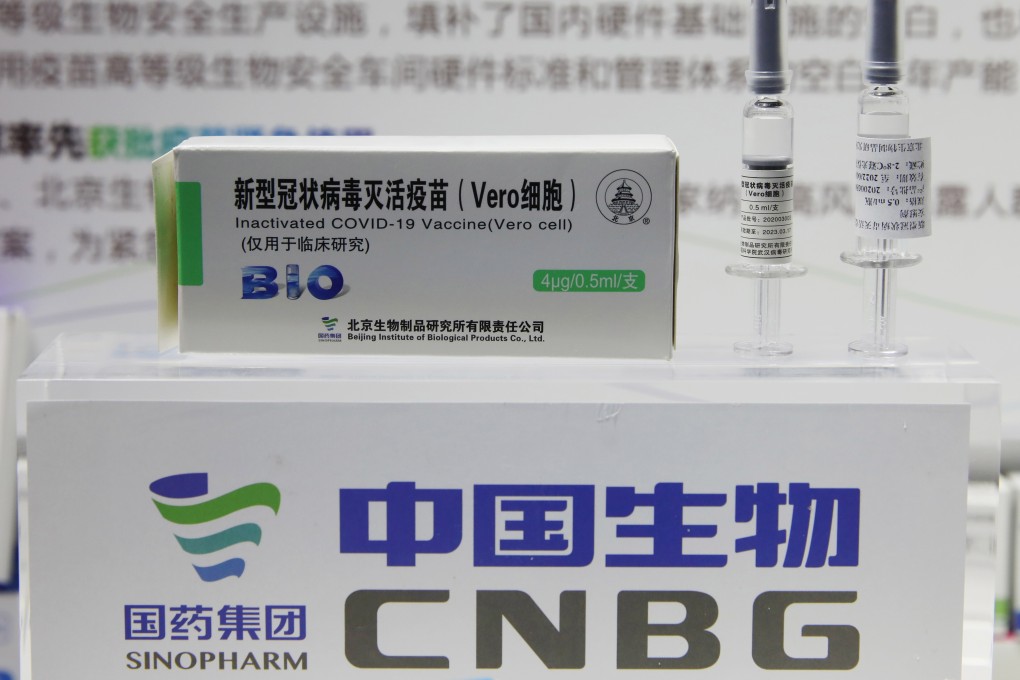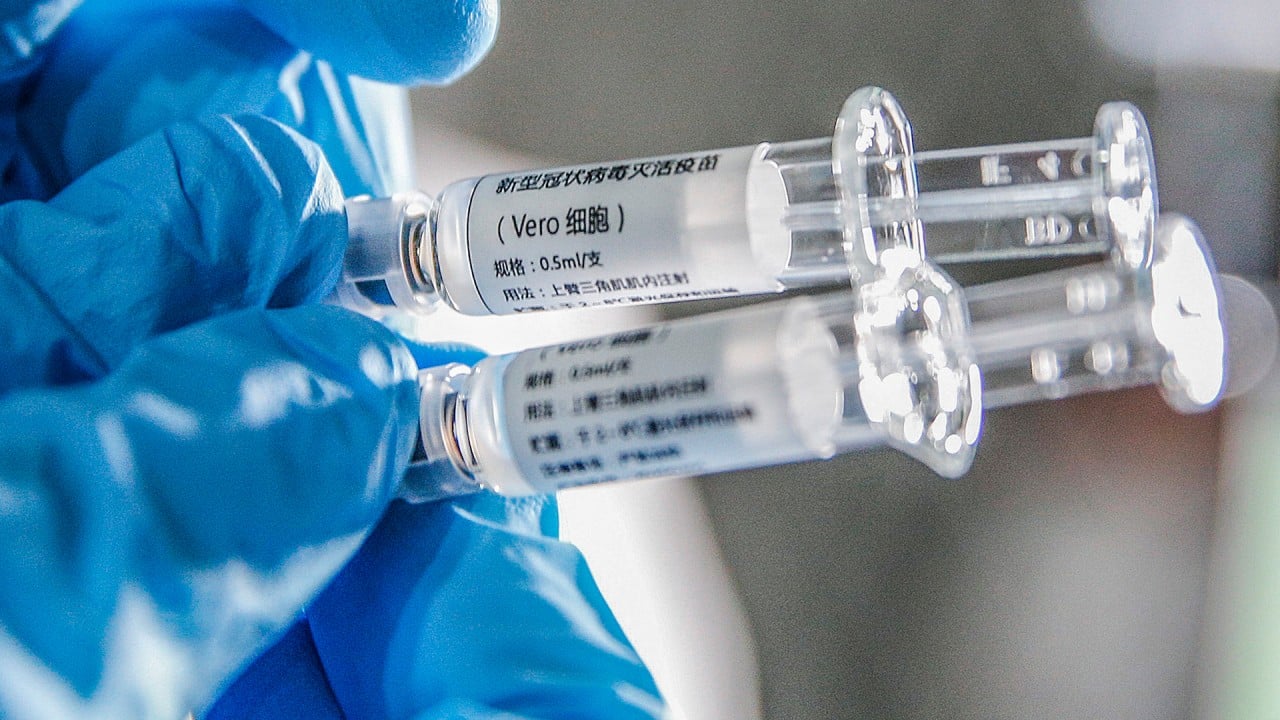China’s Sinopharm reports strong interim results for its Covid-19 vaccine
- Few details were released in the announcement but the company is seeking conditional listing from Chinese regulator
- United Arab Emirates has already reported good results from its interim analysis of late-stage trials

The vaccine was shown to be safe, and participants receiving the two-dose course produced a high level of antibodies against the virus at a rate of 99.52 per cent, according to a statement posted on Wednesday by the company’s subsidiary Beijing Institute of Biological Products – which has also formally submitted an application to China’s regulators for conditional listing, it said.
Few further details were given – including critical information about the number of people evaluated to reach the results, or which data had been analysed.

01:21
UAE is first government to officially approve Chinese coronavirus vaccine developed by Sinopharm
The vaccine is in clinical trials in several countries, including the United Arab Emirates, Bahrain, Jordan, Peru and Argentina.
On December 9, UAE health authorities said the vaccine had proven to be 86 per cent effective in an interim analysis of late-stage clinical trials. The vaccine has already been approved in the UAE and Bahrain.
The vaccine is among those already in use in China under an emergency use authorisation programme launched in July.
Health authorities earlier this month said they were evaluating data from vaccines that were advanced in final phase trials on a rolling basis, and would release data to the public “in time” after trials were unblinded.
Data for the vaccine candidate from the institute’s sister company, Wuhan Institute of Biological Products, has yet to be released.